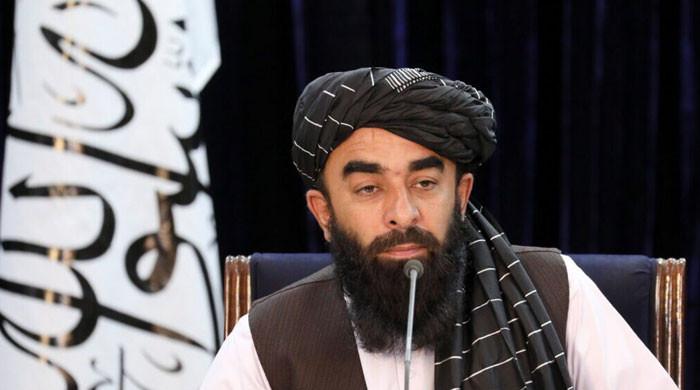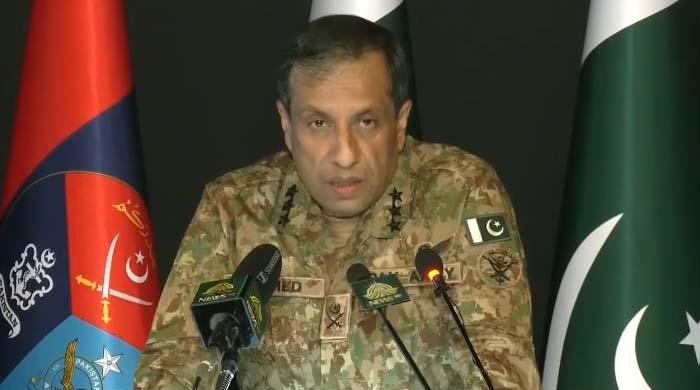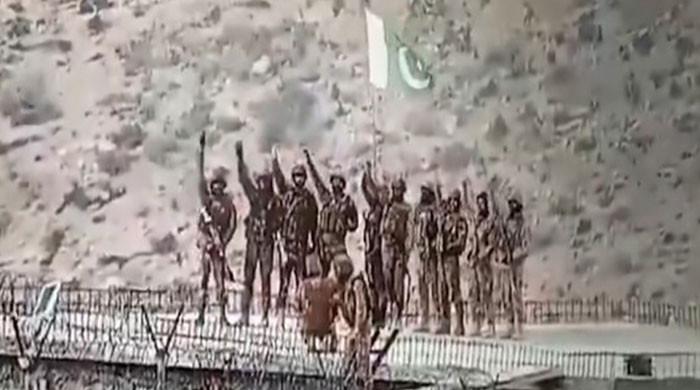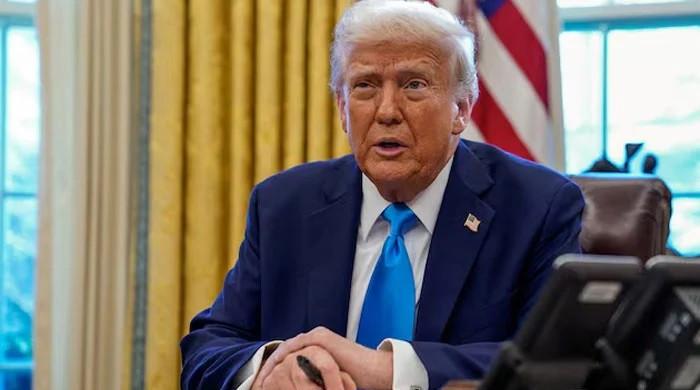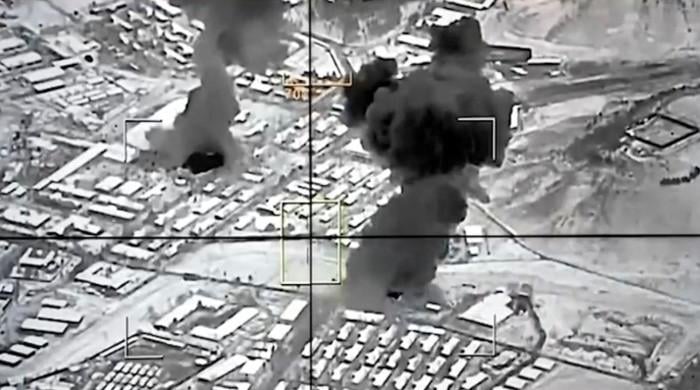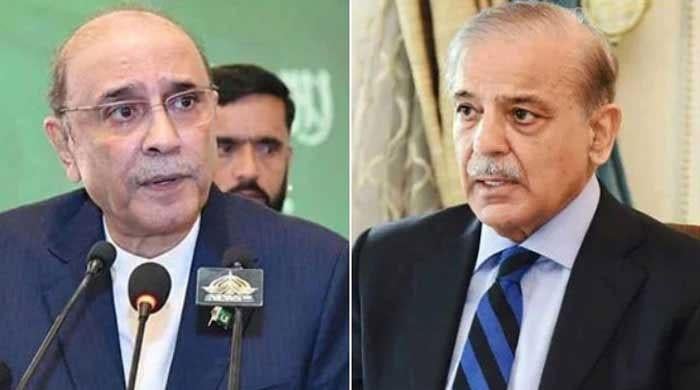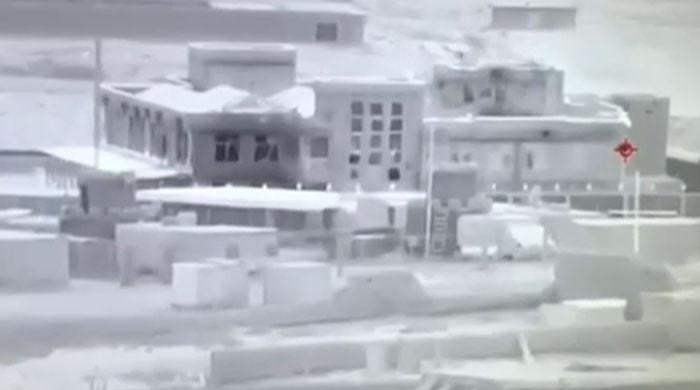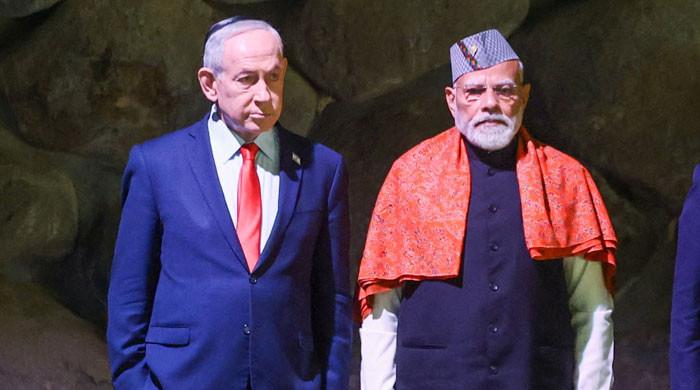We will stay our course: DG ISPR presents 10-year review of security ops
The last 10 years were a challenging time in every aspect for Pakistan, says DG ISPR Major-General Babar Iftikhar
January 11, 2021
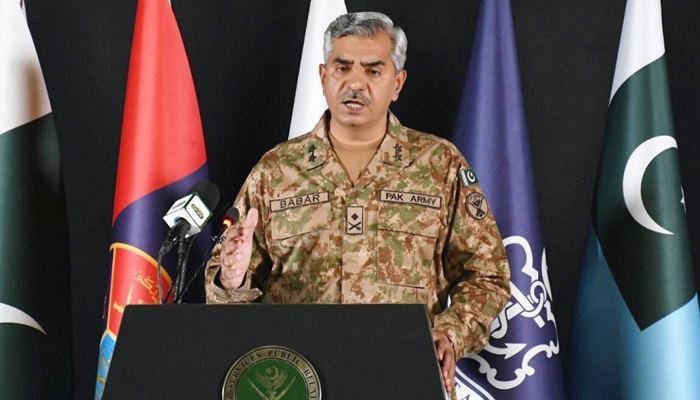
Director-General Inter-Service Public Relations (ISPR) Maj Gen Babar Iftikhar addressed a press briefing in Rawalpindi on Monday to speak on a broad range of security issues and to present an analysis of the security challenges of the past decade.
The army's spokesperson said the last 10 years were a challenging time in every aspect for Pakistan, but in 2020 alone the coronavirus pandemic and locust attack put the country’s food security and economy in severe danger.
Meanwhile, he said, banned organisations were being facilitated on the western front.
Yet, despite all these challenges, the state, institutions, the armed forces and intelligence agencies and most importantly the Pakistani people faced these challenges with a united front.
Returning to his ten-year assessment, he said that along with restoring peace in the tribal districts along the western border, socio-economic projects were also launched in this period.
Maj Gen Iftikhar said concrete steps were taken to strengthen Pakistan’s borders with Afghanistan and Iran, adding that the security situation improved considerably as a result of successful operations against terrorism.
He said that whether it was India’s condemnable designs or the application of hybrid warfare against Pakistan; internal threats or external challenges, we “not only showed and identified [the threats] with facts, but also combatted them successfully. The world is recognising this [Pakistan's position] as well, because the truth always prevails”.
Operation Raddul Fasaad
DG ISPR said Operation Raddul Fasaad "consolidated the achievements of the entire decade" through "a whole of nation approach".
He said through this operation, the terrorists’ support base, their facilitators, abettors, financiers and weapons were destroyed to a large extent.
“Today, there is no organised terrorist infrastructure comparable to the past left in Pakistan,” he said.
Under Op Raddul Fasaad, authorities conducted more than 370,000 intelligence-based operations (IBOs) during the last three years, of which 50 were 'major operations'. As a result of these operations, the authorities recovered 72,227 weapons and 5 million rounds of ammunition.
In 2007-08, the state had control of only 37% of the erstwhile tribal districts. Today, all tribal districts have been completely consolidated into Khyber Pakhtunkhwa.
Major terrorist incidents had declined by 86% in 2020 since the peak in 2013, and were 45% lower compared to the preceding year.
Maj Gen Iftikhar said law enforcement agencies had successfully neutralised half of all threats that arose in 2020.
He also highlighted the significant improvement in Karachi's security situation, stating that terrorism incidents had declined 95%, target killings by 98%, extortion by 99% and kidnappings by 98% since their peak.
Management of western border
Maj Gen Iftikhar said border terminals, scanners, posts and fencing had been utilised to cut down security threats. More than 83% of the Pak-Afghan border have been fenced, and more than 37% of the Pak-Iran border have been fenced.
These measures have led to improved revenue collection and reduced smuggling, as well as a marked reduction in terrorist and bombing incidents.
India and the eastern border
Maj Gen Iftikhar said there had been a marked increase in provocative incidents from the Indian side along the Line of Control, as well as an increase in targeting of civilian populations.
"This includes innocent children, women and elderly," he said.
He highlighted the near exponential increase in ceasefire violations from the Indian side since 2014, which resulted in high levels of civilian casualties.
"We have retaliated with full force, and the Indian side has had to suffer heavy losses due to our response," he said.
When they couldn't succeed in this domain, India resorted to fifth-generation warfare, the general said.
A dossier of proofs related to India's involvement in terrorism-related incidents in Pakistan was handed over to the international community, and 'incontrovertible proof' has been brought forth about India's involvement in a disinformation campaign against Pakistan as a result of the EU DisInfo Lab's investigation.
"Before we dissect India's disinformation campaign, it is necessary to understand consider what Pakistan and India have been busy in over the last two decades," Maj Gen Iftikhar said.
"Pakistan waged a successful war against terrorism in that period and demonstrated it is a responsible state. It conducted more than 1,200 kinetic operations targeting all types of terrorist organisations. More than 18,000 terrorists were eliminated."
The general also highlighted a host of laws enacted to strengthen Pakistan's anti-terrorism efforts, as well as the support extended to the international community as part of the global war against terorrism.
"More than 1,100 Al Qaeda terrorists were captured or killed; intelligence was shared with more than 70 countries, and Pakistan sacrificed 83,000 lives and $126 billion in economic losses in the process."
"What was India doing at this time? India was escalating border incidents on its eastern front, enacting one of the worst lockdowns in occupied Jammu and Kashmir along with flagrant violations of human rights, and making an unsuccessful attempt against Pakistan in February 2019."
Maj Gen Iftikhar listed more of India's illicit activities in this period, including evidence of Indian banks' involvement in terror financing and money laundering, Kulbhushan Jadhav's assignment to Pakistan, the farmers' protest in Indian Punjab, the noxious verdict in the Babri Mosque case, the EU DisInfo Lab's report and the UNHRC's damning findings of genocidal Indian activities in occupied Kashmir.
The DG ISPR delved into the revelations of the EU DisInfo Lab's 'Indian Chronicles', highlighting the role of companies like AGLAYA, which are tied to Indian intelligence agencies.
"If we examine this 15-year campaign, it hurt Pakistan's international standing quite badly. Pakistan was targeted in six different domains, including terrorism, economy, diplomacy, internal conflict, Kashmir and social issues."
"We have no doubt that this was being done with the Indian state backing it," he said.
"This should serve as a call to action for decision makers to put in place a relevant framework to sanction actors and governments abusing international institutions, influencing decision makers and misleading world opinion," he said.
The dividends to Pakistan
"Khyber-Pakhtunkhwa and Balochistan, which had been wracked by unrest, are now seeing development," the DG ISPR said, speaking about what Pakistan has gained from its security policies.
"Some anti-state elements are working to spread unrest in Balochistan, but Pakistan's security agencies are working day and night to thwart their designs," he said.
"From a clear and hold process, we are now in the build and transfer stage," of a policy of stability through development in Balochistan, the DG ISPR said.
Speaking about the coronavirus pandemic, Maj Gen Iftikhar said Pakistan mobilised a strong response through the National Coordination Committee and National Command & Operations Centre despite being limited by the resources it had.
"This has been acknowledged by the world."
He paid tribute to doctors, paramedics and frontline healthcare workers, as well as the institutions involved in the coronavirus response, for their work in this regard.
He also thanked the media for keeping the public informed during the pandemic, and for exposing Indian propaganda and exposing the challenges facing Pakistan.
"Enemy forces seek to divide us, and we each have an individual responsibility [in this regard] and role to play. Our goal is the same: to play our part in helping Pakistan succeed," he said.
"When we took on this challenge [...] the enormity of this challenge was decidedly overwhelming. But with Allah's help and the resolute support of our great nation, we took it on. We have taken many hits on the way, but we did not relent and did not budge. During this whole course, in these testing times, we have come a long way as a nation, as a society and as a military.
The most important thing is, we have stayed the course. We have stayed the course and, God willing, we will stay the course no matter what. Thank you very much," he concluded.




